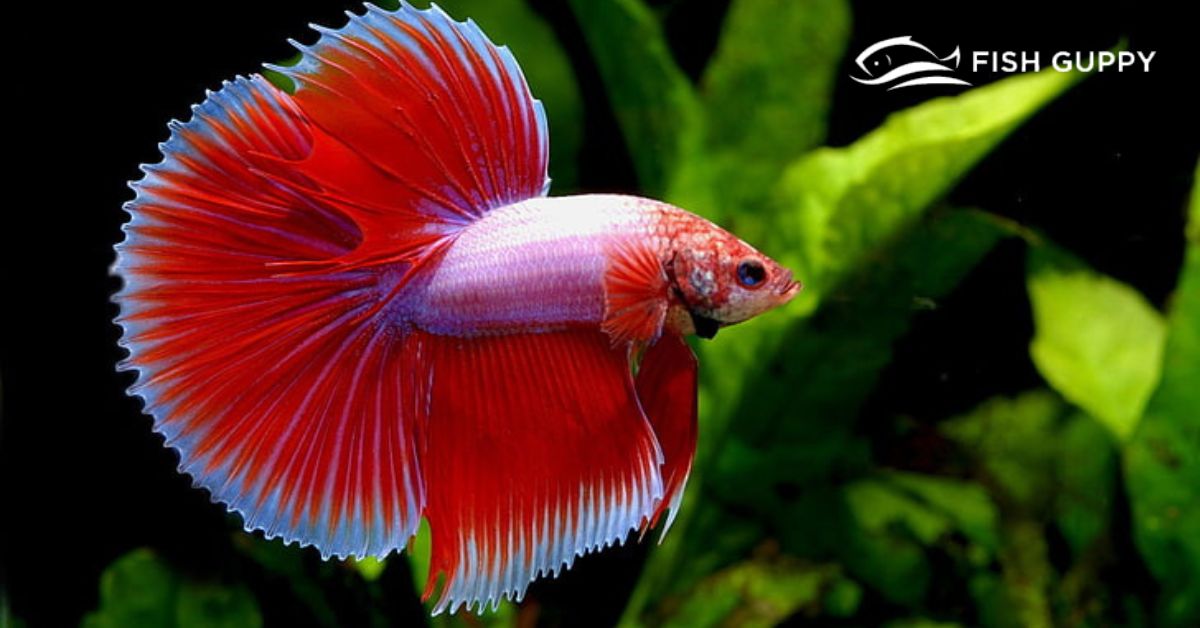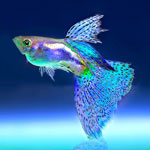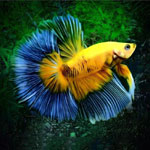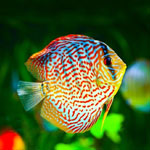Can Betta Fish Leap? An In-Depth Exploration of Betta Behavior
June 26, 2024 Betta Fish
Have you ever been mesmerized by your Betta fish’s sudden jumps out of the water? These impressive displays of acrobatics showcase their natural instincts, leaving you amazed by their intelligence! With their vibrant colors and elegant fins, Bettas are beautiful to watch, but it’s their innate ability to leap that truly makes them unique.
It’s common to feel worried when your fishy pal decides to explore outside their water-filled habitat, but there’s no need to fret as Betta fish are known to jump as a natural part of their behavior.
This guide will help you understand why your Betta fish jumps. By exploring the reasons behind their leaping behavior, including their natural instincts and responses to their environment, you will develop a better understanding of your pet. This insight will enable you to recognize signs of stress or discontent and make changes to ensure a peaceful and happy environment in your aquarium.
We will guide you through maintaining optimal water quality and setting up a vibrant underwater environment complete with hiding spots and enrichment activities for your Betta fish. By the end, you will be equipped to understand your Betta’s behavior and cultivate a safe space that minimizes potential risks. Let’s begin!
Betta fish are recognized for their tendency to leap out of the water for a variety of reasons. While their high-flying jumps may be impressive, it is vital to implement safety measures to avoid potential harm from accidental leaps. Let’s explore the reasons behind why Betta fish exhibit this jumping behavior.
Why Betta Fish Jump: Exploring the Causes
Let’s explore the reasons for fascinating jumping behavior seen in Bettas.
- Natural Instinct: Betta fish are hardwired to jump, a behavior stemming from their need to navigate between small bodies of water in the wild.
- Poor Water Quality: Elevated levels of ammonia can distress Bettas, prompting them to jump in search of cleaner water.
- Lack of Space: Cramped tanks can make Betta fish feel confined, motivating them to jump.
- Lack of Hiding Places: Without hiding spots, Betta fish can feel vulnerable and anxious, leading them to exhibit stress-related behaviors like darting and jumping.
- Hunting Instincts: Betta fish have a natural inclination to jump in pursuit of insects.
- Feeding Response: Betta fish may jump when it’s feeding time, mistaking it for insects on the water’s surface.
Exploring the Function of the Labyrinth Organ
The labyrinth organ, found in the gills of Betta fish, enables them to breathe air from the atmosphere when oxygen levels in the water are low. This unique adaptation is a crucial survival mechanism for Bettas.
When this occurs, Bettas are more inclined to make use of their labyrinth organ, resulting in increased jumping. Adequate tank aeration can meet their oxygen requirements and lessen their dependence on the labyrinth organ for oxygen, ultimately decreasing their jumping tendencies.
Establishing a secure and engaging space
Betta fish enjoy jumping, but they also appreciate a comfortable environment. By creating a well-equipped and secure tank, you can keep your fish content and reduce their urge to leap out.
Ensuring optimal tank conditions and proper maintenance
Ensuring the happiness of your Betta fish begins with their tank. To guarantee that your Betta is contentedly swimming in their habitat, concentrate on the following suggestions:
- Size matters when it comes to your Betta’s tank. It is essential to provide a minimum of 5 gallons of swimming space per Betta for their well-being and stable water quality.
- Regularly check and maintain your equipment, including filters, heaters, and lights, to ensure they are functioning properly and replace any worn-out parts as needed.
- Maintain stable water chemistry with a temperature of 75-80°F and a pH of 6 to 7 to prevent stress and jumping behavior in Bettas.
- Regular water changes, at least once a week, are important to keep water conditions safe. Use a reliable kit to test for ammonia, nitrites, and nitrates levels.
- Consider using aquarium salt in small, specific doses to prevent diseases, following a trusted Betta fish care guide for accuracy.
- For new fish or sick Bettas, be sure to quarantine them before introducing them into the main tank.
Enhancements and Add-ons for Tanks
To ensure your Betta fish is content and in good health, selecting the appropriate tank accessories and enrichment items is essential. These small additions have the power to turn a simple tank into a lively and stimulating habitat for your aquatic friend. Let’s explore some of these items:
Creating a Stimulating Environment for Your Betta Fish
Including caves and hiding spots in your Betta fish tank will provide mental stimulation and encourage exploration. Live and floating plants not only enhance the habitat, but also serve as natural hiding spaces and help filter the water.
To keep your Betta fish active, consider adding a Betta exercise mirror for it to display its natural territorial behaviors. Live foods like brine shrimp and daphnia can also stimulate its hunting instincts.
Maintaining a stable aquarium light cycle will promote a healthy sleep pattern for your Betta. When choosing tank mates, opt for peaceful and compatible fish to prevent stress and territorial conflicts.
Preventing Escape and Injury
Ensuring the safety of your Betta fish is crucial in avoiding their escape. Let’s explore effective methods to prevent your Betta from getting out and potentially harming themselves.
Creating a Stress-Free Betta Habitat
Ensuring a peaceful and stimulating habitat for your Betta is essential. Provide ample hiding spots, live plants, and engaging elements for them to explore. Avoid overfeeding, loud noises, and other stressors that could lead to jumping behavior.
A relaxed and content Betta is far less likely to attempt an escape. By taking these simple precautions, you can keep your aquatic friend safe and secure in their underwater home. No more concerns about unexpected Betta acrobatics—just sit back and enjoy watching them thrive.
Securing the Aquarium with Proper Covers
Using a suitable tank lid or aquarium cover is your first line of defense against your Betta fish jumping out and getting injured. Your vigilance and attention to detail can effectively prevent escapes, ensuring the safety of your beloved Betta.
Recognizing the Need for a Larger or Better-Designed Tank
Sometimes a Betta fish requires more space or a differently designed tank to feel comfortable and prevent jumping. If I notice my fish frequently trying to escape, I consider upgrading to a larger tank.
A bigger environment can alleviate stress caused by confinement or lack of space. The new tank should also have adequate height and hiding spots, enhancing my Betta’s sense of security.
Conclusion
In summary, Betta fish jumping may seem alarming, but understanding the reasons behind it is essential for maintaining the well-being of your aquatic friend. Remember, while jumping is a natural behavior for Bettas, it can also indicate issues within their tank environment.













